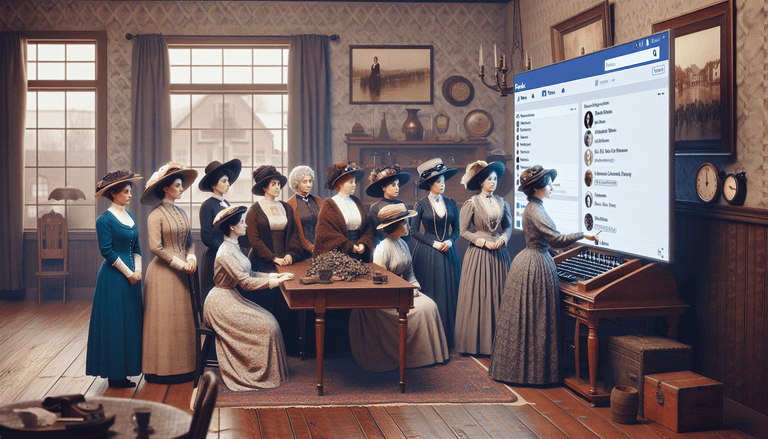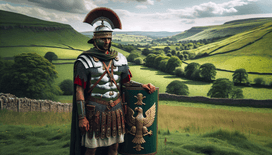Ah, the Suffragettes; a band of fearless, corset-wearing revolutionaries armed with words, pamphlets, and an unyielding desire for change. Imagine, if you will, this feisty crew armed with Facebook. Would they have wall-posted their way to victory, or would Zuckerberg's empire crumble under the weight of their fervour? And perhaps more importantly, would the friends lists of this courageous crew be filled with some of the more notable players of King Edward VII's court?
A status update from the past
Envision an iconic figure of the movement, Emmeline Pankhurst, updating her status. "Emmeline Pankhurst is chained to a railing outside 10 Downing Street #VotesForWomen." The likes start trickling in. They'd be more occasional than regular, given the platforms available in 1903, but you can be sure the progressive minds would double-tap their hearts out.
Alternatively, consider the power of group creation. "The Women's Social and Political Union (WSPU) would like you to join the group ‘We Want Votes Too!’" Notifications would ping endlessly as women all over Britain (and beyond) clicked ‘Join Group’ with the zeal of a millennial ordering avocado toast.
Weaving a web of influence
The influence of the Suffragettes was like a delicate web woven with precision. Camden, Hull, and Edinburgh – each thread ever so intricate. With Facebook, their operations could be as sophisticated as a cat stalking its prey with GPS tracking.
Imagine campaign events doing the rounds on the Facebook Events page. Hundreds may have clicked ‘Interested’ in 'Pankhurst Marching and Tea Party'. The rally cries of ‘Votes for Women’ becoming hashtags heard around the virtual world. Yet, we, with our modern perspective, must muse – would the Rowsley's of the world have been outraged by such digital transgressions? Perhaps the establishment would’ve mounted a few counter-strategies: "Men’s Rights Movement: Keep Your Vote, Ladies. Stick with Skirts." One wonders how they would have fared...
Handling the inevitable trolls
Now, let us be honest; any campaign visible to the public eye inevitably draws trolls like moths to a flame. One can picture a post from Pankhurst: "The Women's Right to Vote is a must!" only for some opposition to drop in bold, with a keyboard warrior's verve: "But what about the REAL men's work? Who will wash our hats?"
In this virtual battlefield, however, they would arm themselves with all the wonderful modern retorts that we've all come to know and love. After all, wielding the ability to hide someone from your feed still leaves you the option to continue fighting the good fight where it counts.
Fighting with memes and myth-busting
Suffragette memes would have been a thing all their own. Imagine the numerous Oscar Wilde quotes cleverly punctuated with, "But what did he know about women's rights?" Or maybe a gif of a cat voting. Never mind ‘dancing cat’ gifs; let's talk about ballot box boogies!
Debunking misinformation could become something of an art form, too. See an image with text: "96% of women enjoyed staying at home in 1911. Don’t believe us? Just 18 out of 20 domestic servants agree!" With a swift click, in comes the apt retort: "Fun fact: domestic roles weren't based on actual surveys, unlike this clarification." The comment threads would witness great debates – naturally, with the odd troll getting bested by logic and a sense of humour.
Closure in the land of likes
The story of the Suffragettes is one of triumph. Imagine the scenes when the 'Representation of the People Act' of 1918 passes – the supreme post circulating: "Finally! #VotesForWomen achieved. Time to open a cat cafe!" The like and love reactions would soar, not driven by a rise in caffeine consumption alone, but the gratitude of a nation finally taking another step towards equality.
In the end, the power of the Suffragettes was that they did not stop fighting for what was right. With or without Facebook, their determination would have moved mountains. Yet it's always fun, isn't it, to imagine scrolling through history and liking a few moments along the way.







